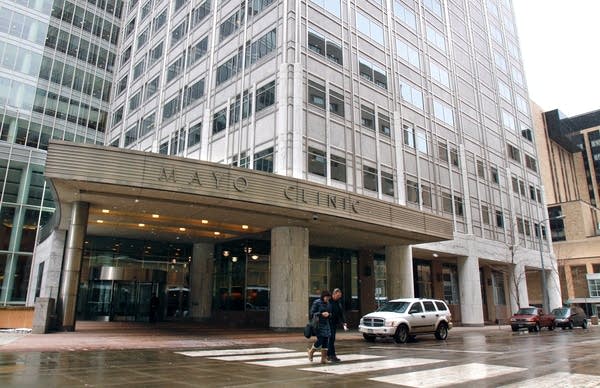Mayo Clinic part of new nationwide health innovation network

Pedestrians cross the street as they leave Mayo Clinic's Gonda Building in Rochester, Friday, Jan. 22, 2016. Mayo Clinic is one of the initial participants in a new nationwide health innovation network.
Alex Kolyer for MPR News
Go Deeper.
Create an account or log in to save stories.
Like this?
Thanks for liking this story! We have added it to a list of your favorite stories.


